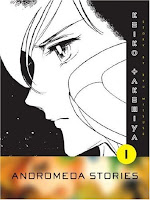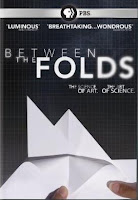 Author: Ryū Mitsuse
Author: Ryū Mitsuse
Translator: Alexander O. Smith and Elye J. Alexander
U.S. publisher: Viz Media
ISBN: 9781421539041
Released: November 2011
Original release: 1967
Ryū Mitsuse’s Ten Billion Days and One Hundred Billion Nights is considered to be one of the greatest Japanese science fiction novels to have ever been written. As a lover of both science fiction and Japanese literature, I knew I wanted to read it without any hesitation. I was thrilled when Haikasoru, Viz Media’s Japanese speculative fiction imprint, released the English translation by Alexander O. Smith and Elye J. Alexander in 2011. Ten Billion Days and One Hundred Billion Nights was originally published in Japan in 1967 but Mitsuse slightly revised the book in 1973. Haikasoru’s edition is based on this revision. Very little of Mitsuse’s work is currently available in English. The only other two works that I know of are Andromeda Stories, a manga collaboration with Keiko Takemiya which I have read and enjoyed, and his short story “The Sunset, 2217 A.D.” which was included in Best Science Fiction for 1972, edited by Frederik Pohl, which I now plan on tracking down.
Ten Billion Days and One Hundred Billion Nights begins with the birth of a planet. It ends eons later. From the deepest depths of the sea to the farthest reaches of space, from a time epochs before the existence of humanity to an age beyond its downfall, the journey is epic in its scale. There is the city of Atlantis, its brilliance and its destruction as incomprehensible to its population as it is to those outside. There is Plato and his search for the long lost city, leading him to unexpected places and revelations. There is Prince Siddhārtha, destined to become the Buddha, whose quest for enlightenment changes him completely. There is the unprecedented influence of Jesus of Nazareth, whose presence changes the world. And there is the final confrontation between incredible forces at the end of it all.
The translation of Ten Billion Days and One Hundred Billion Nights is phenomenal. The prologue is especially stunning in addition to being one of the more immediately accessible portions of the novel. The prologue actually happens to be one of my favorite parts of the book; I’ve already read and reread it several times on its own. Mitsuse’s writing combines the real and the fantastic in wondrous ways. Particularly impressive in Ten Billion Days and One Hundred Billion Nights is his layering of Buddhist and scientific cosmologies. However, some of the chapters may be a little overwhelming to a reader who does not already have some familiarity with Buddhism. The same is true for Christianity as well, but to a much lesser extent. Granted, after four chapters of setup, more than half of the book, Mitsuse lets loose and challenges readers to reconsider everything they thought they knew, anyway.
Ten Billion Days and One Hundred Billion Nights is not an easy read. The story is not just there to be consumed passively. Instead, it demands thought and contemplation; the reader is required to make an effort in order to fully appreciate the novel. While reading Ten Billion Days and One Hundred Billion Nights, I was constantly struck by a heady sense of vertigo, adrift with complete understanding seeming to be just beyond my grasp. It’s a feeling that the characters, too, must deal with. But throughout the novel are threads that tie everything together, so thin that they might not even be noticed at first, but serving as a tenuous anchor. Seemingly unrelated events are shown to be connected and carry a greater significance than might be initially assumed. It is only after finishing the entire novel that things will really begin to fall into place and sink in. I’ve been thinking about Ten Billion Days and One Hundred Billion Nights ever since I finished the book and my admiration continues to grow. I want, and need, to read it again.




